Picnic Rocks
The most beautiful stop for paddlers on the Kennebunk River is Picnic Rocks. It has been so for at least 150 years but a few times it came this close to being split up for development. Thank goodness, preservation-minded individuals stepped up just in time.
Cape Arundel Cottagers made Picnic Rocks a popular canoeing destination starting in the 1870s. By the time The Kennebunk River Club had built a boathouse in 1890 their annual canoe races conducted at Picnic Rocks were the Club’s most popular annual activity.
The property around Picnic Rocks belonged to two older local men, Henry Towne, a former ships carpenter and Horace Clough, a farmer. They had previously allowed the public to use Picnic Rocks for free but finally thought to capitalize on the popularity of their property by charging a dime for boats to land there. Barring that, they planned to sell the property outright. Members of The Kennebunk River Club were reluctant to start paying for a privilege that had always been free.
Mr. Elon Dunbar Lockwood to the rescue. Lockwood, a wealthy Philadelphia bachelor with a cottage at Cape Arundel, purchased land on both sides of the river, 10 acres from Henry Towne and 15 acres from Horace Clough for a total of $2,000. An announcement of the sale appeared in the Wave, “The object of the purchase was to preserve these beautiful grounds from desecration, and from being leased or sold for excursions, booths, etc. Mr. Lockwood has proposed that a syndicate be formed to hold these grounds, either to be sold to the River Club hereafter, or held for a park for the use of all.” Confidant that the River Club would come up with a plan to make him whole, he set about improving the land with boat floats, trails and rustic benches during the 1891 season.
Mr. Lockwood passed away after a short illness on December 31, 1891 leaving all his property to his two brothers, Charles and William Lockwood. The Board of the Kennebunk River Club insisted that Mr. Lockwood had purchased the Picnic Rocks property on their behalf and that they should have it as an inheritance. The Lockwood brothers thought otherwise and tried to negotiate a deal with the Club while allowing free use of the property for several years. No deal.
Wave 1895 7-20 “GUARDED! Visitors refused landing at Picnic Rocks. Owners want to sell their lands. Armed Watchmen Patrol the Banks of the river. Boat races must occur down the stream.”
The Lockwood Brothers put the property on the market for $2,500. River Club members were outraged. By the end of that season, a syndicate of Cape Arundel cottagers had agreed to purchase Picnic Rocks from the Lockwoods on the condition that the River Club would promise in writing to pay them back at cost by September 1900. By the opening of the 1900 season The Club still owed $950. At a special meeting, they contemplated putting guards at Picnic Rocks floats to charge non-members for landing. “It was not right, in the opinion of several River Club Board members, for everyone to use the floats and grounds of the Club unless they paid something. Other Board members argued that the public might see hypocrisy in that. In the end, the Club treasury raised all but $100 of the debt by holding a public fair.
The Kennebunk River Club put Picnic Rocks for up for sale many years later. On January 27, 1960, the Picnic Rocks property was sold to George Butler of Biddeford and his son George Robert Butler of Kennebunk for the purpose of protecting it from development. They later conveyed the Butler Preserve to The Kennebunk Land Trust on condition that it be protected forever.
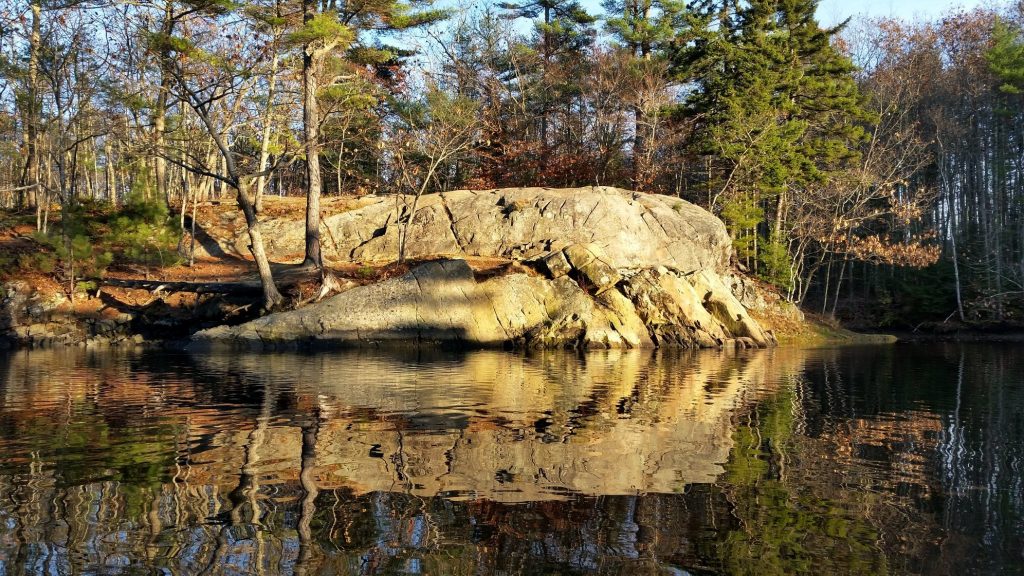
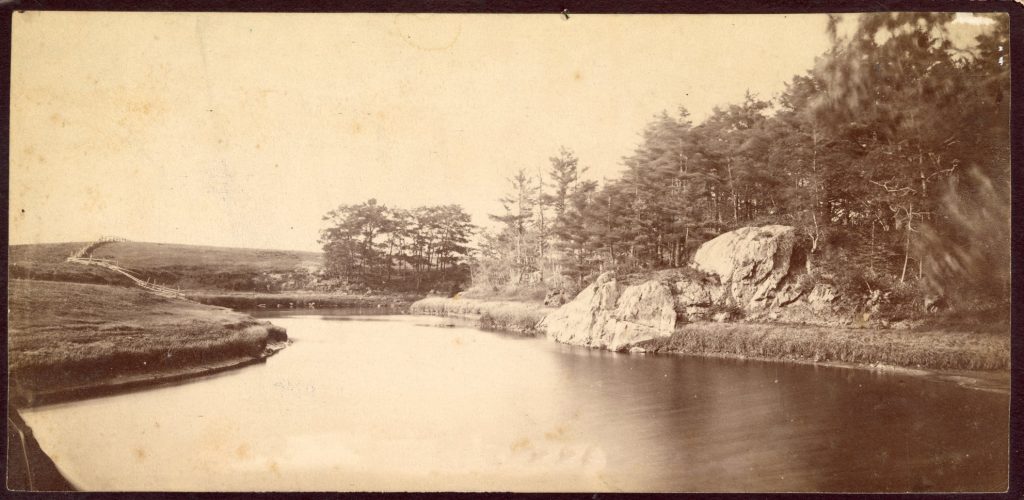
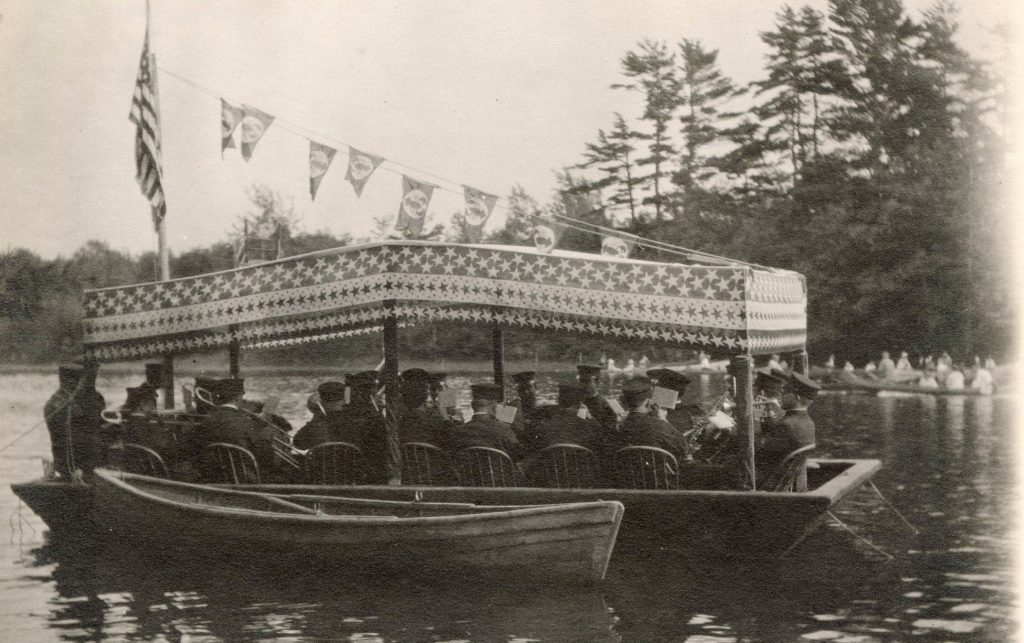
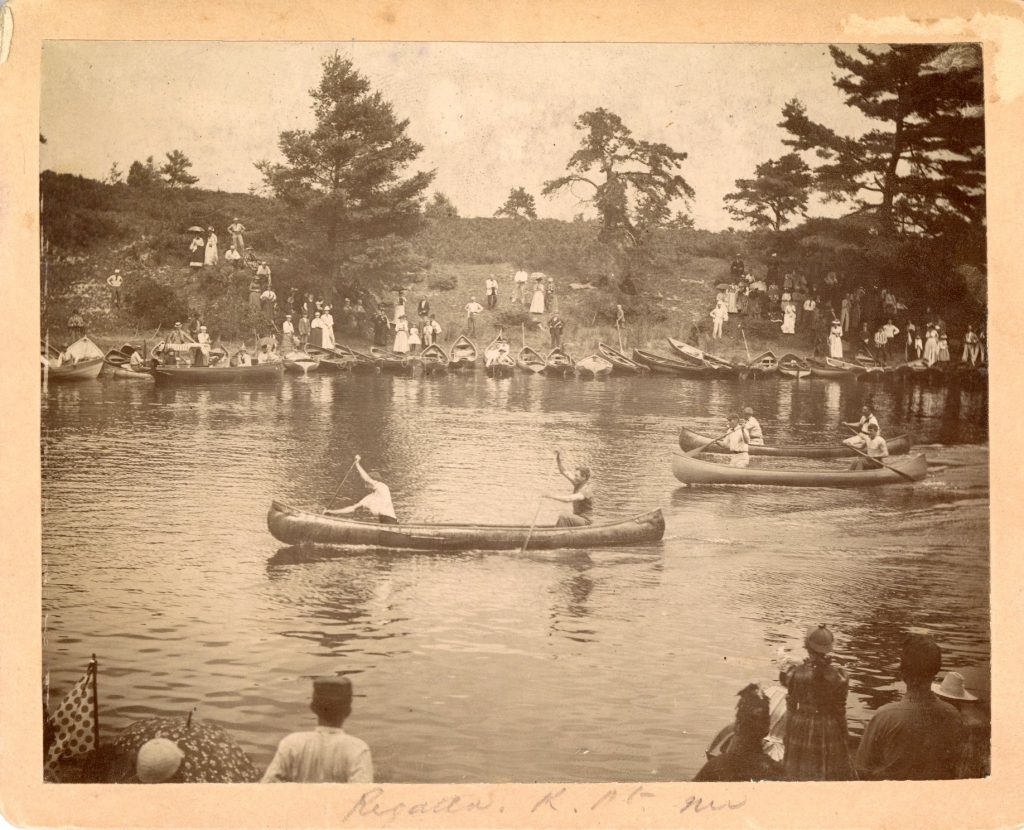
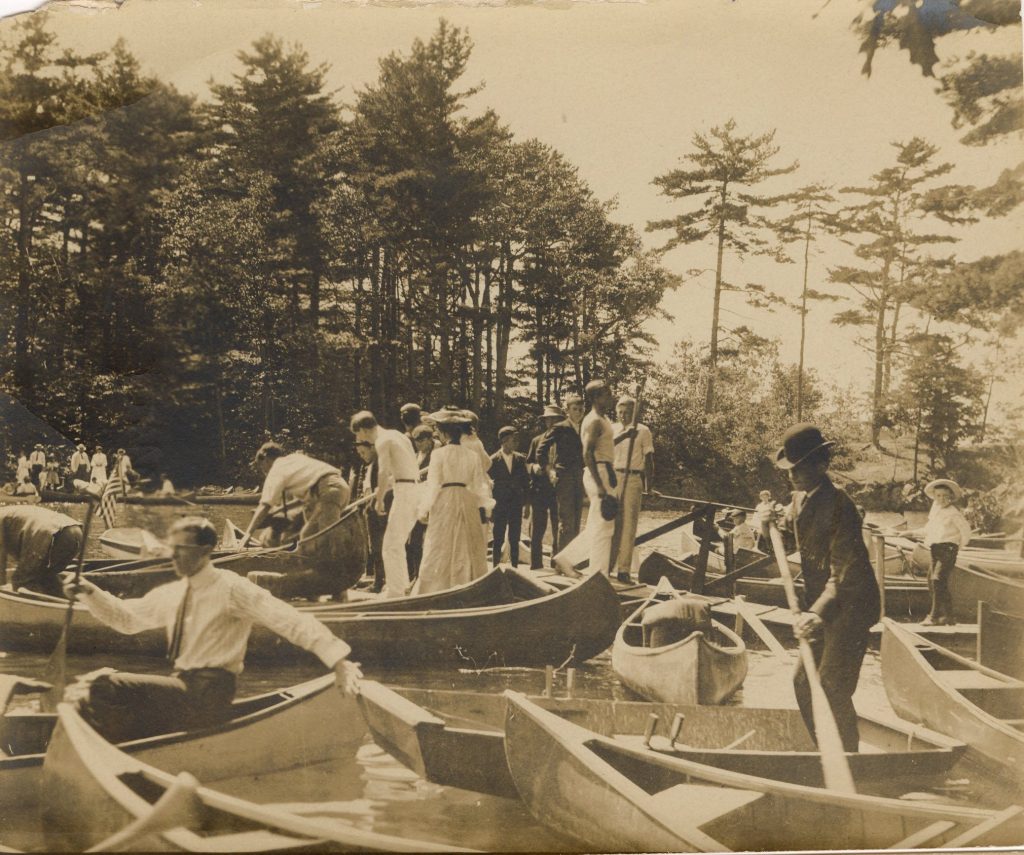
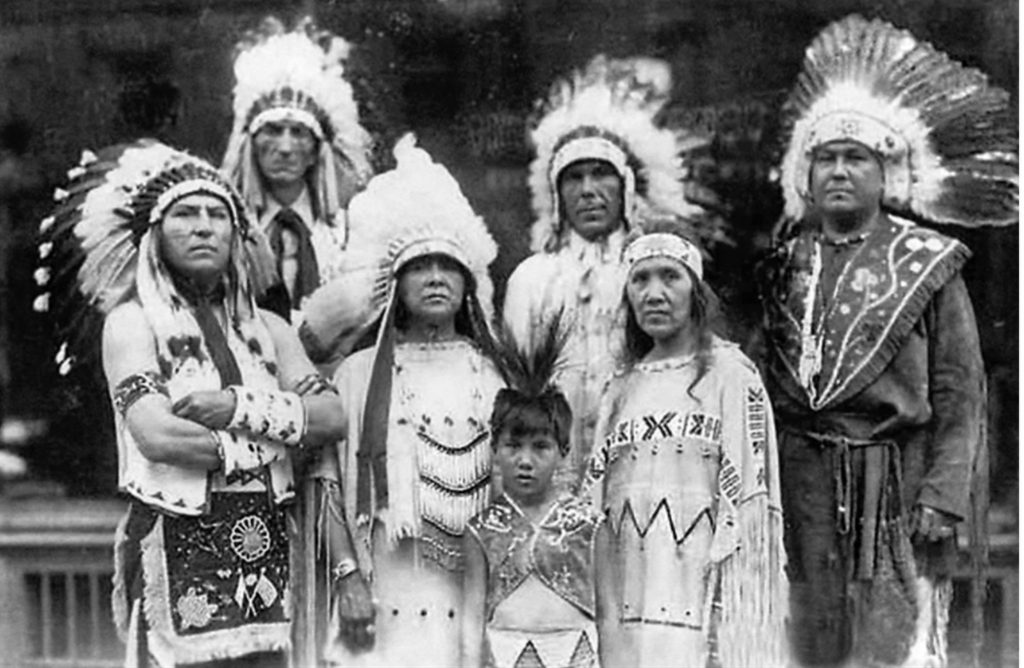
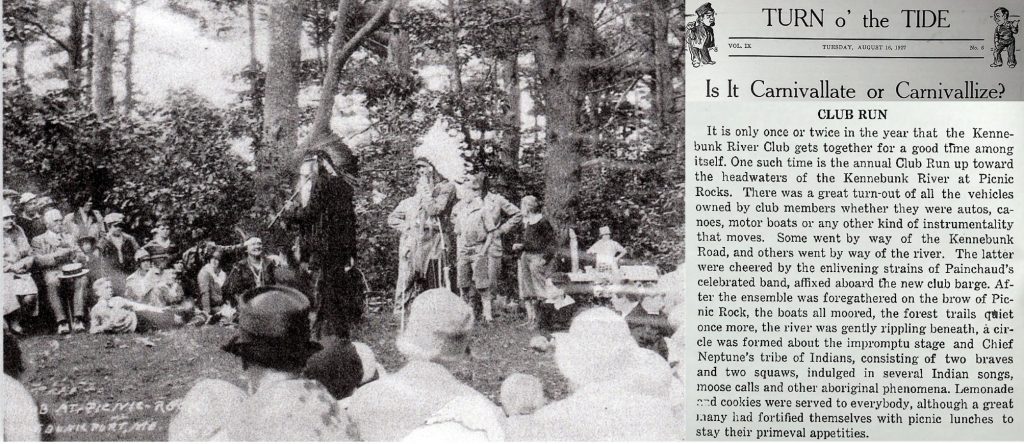


Leave a Reply